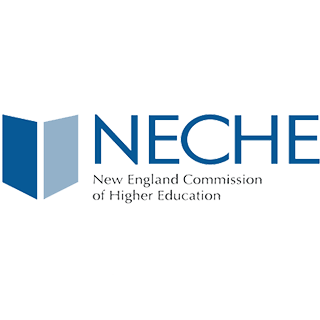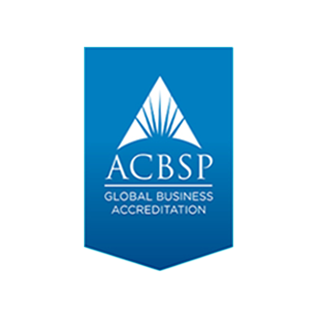Bachelor of Science in Accounting Finance New England campus experience

Program Overview Why get an accounting and finance degree on campus?
The Bachelor of Science in Accounting and Finance major offers the coursework you need to qualify for a variety of careers in business, including accounting and finance. The degree prepares you for meaningful employment in areas such as accounting, banking, corporate finance, insurance, investments and personal finance. Here, you'll analyze, interpret and communicate financial and accounting information to various internal and external stakeholders, as you study the complexities of economic activity and the demands all firms face in focusing on the bottom-line, financial perspective.
Skills you'll learn:
- Research and financial analysis
- Diverse audience communication
- Critical thinking
- Ethical problem solving
- General accounting principles
- Auditing and taxation

Courses & Curriculum Interpret finances with on-campus accounting and finance courses
The coursework and curriculum for your accounting and finance degree at SNHU incorporates theories of asset allocation, security analysis and portfolio diversification to help you efficiently manage an investment portfolio. The courses in our BS in Accounting and Finance program will give you a solid foundation in accounting and finance principles and practices.
Interested in learning in an online environment? This same curriculum is offered through SNHU's online accounting and finance degree.
Campus accounting and finance degree concentrations
Looking to specialize your degree? SNHU offers a concentration for the BS in Accounting and Finance degree.
The management accounting concentration will prepare you with the skills and knowledge necessary for professional careers in management accounting. You'll gain skills in financial data analysis techniques and accounting systems to be able to evaluate the performance of an organization. You'll also have an opportunity to formulate and effectively communicate recommendations. This concentration will cover content that is included in the Certified Management Accountant (CMA) Certificate Exam.
Learn from instructors with industry experience
Our faculty members bring with them decades of knowledge and experience, which informs the development of SNHU’s courses and curriculum. They look forward to supporting your journey both in the classroom and as you work toward a career in your field.
Bo Liu
Position
Assistant Professor of Economics at Southern New Hampshire University
Joined SNHU
2017
Education
- LLB from Peking University
- PhD and MA in Economics from Georgia State University
- MS in International Business from Southern New Hampshire University
Dr. Bo Liu is fluent in both English and Mandarin. His research focuses on the intersections of environmental, labor, urban and behavioral economics. His current projects include studying how climate change impacts labor productivity and conducting a field experiment on the Dunning-Kruger Effect in introductory economics classes. His work has been published in the Journal of Urban Economics and the Southwestern Economics Review.
Dr. Greg Randolph
Position
Professor, Department Chair, Finance and Economics
Joined SNHU
2007
Education
- PhD in Economics from West Virginia University
- BA in Finance (economics minor) from Grove City College
With public economics as his primary research field, Greg Randolph's current research projects include examining the impact of federal regulations, evaluating the criminal justice system and exploring the use of media to teach introductory economics courses. His publications include articles in the Journal of Institutional Economics, Business and Politics and Economics and Politics. He has also served as the co-editor of "Entrepreneurial Action, Public Policy, and Economic Outcomes" and "Public Policy, Productive and Unproductive Entrepreneurship" with Robert Salvino and Michael Tasto.
To learn more about SNHU faculty, visit our campus faculty page.
Campus major courses
You’ll take major courses that provide you with a solid foundation in your area of study – in some cases featuring experiential or project-based learning opportunities, labs, simulations and internships. These courses will allow you to learn a wide variety of topics and help prepare you for a role in your desired field.
Courses may include:
Visit the course catalog to view the full BS in Accounting and Finance curriculum.
Campus general education courses
All undergraduate students are required to take general education courses, which are part of SNHU's newly redesigned program, The Commons. The goal of The Commons' curriculum is to empower you with some of the most in-demand skills, so you can succeed not only in your academic career, but in your personal and professional life too.
Courses may include:
Can’t wait? You don’t have to!
Apply now if you’re ready, and have your decision within 30 days. Or, schedule a visit and come see us in person!
Career Outlook What can I do with an accounting & finance degree?
In the field of accounting and finance, there are many potential career paths you could consider. The accounting and finance BS prepares you for careers in areas such as: corporate accounting, banking, financial analysis, government services or other accounting-related areas.
Career paths include:
- Management accountant
- Forensic accountant
- Internal/external auditor
- Financial analyst
Yearly projected job openings on average for accountants and auditors through 2033 according to the U.S. Bureau of Labor Statistics (BLS).1
The median annual wage for accountants and auditors as of May 2023 according to BLS.1
Understanding the numbers
When reviewing job growth and salary information, it’s important to remember that actual numbers can vary due to many different factors—like years of experience in the role, industry of employment, geographic location, worker skill and economic conditions. Cited projections do not guarantee actual salary or job growth.

Campus Student Experience So, what's it like taking classes on campus?
SNHU's campus experience means you won't just be sitting in a classroom, you'll also be collaborating with your professors and peers on various projects. In the accounting and finance program, you'll be actively putting your learnings to good use by presenting your projects at Undergraduate Research Day, partaking in the Economics and Finance Club or even participating in the stock market challenge.

Student support
At SNHU, you don’t have to do this college thing alone. You’ll have help from your advisor, access to tutoring and office hours, career coaching, and mental health services so you can do your best and feel your best.
Additionally, our Office of Diversity and Campus Accessibility Center make campus a safe place for everyone. Visit our Student Services page to learn more about our support offerings.

Small class sizes
With an average class size of 15-25 (depending on your major) you’ll learn in an environment where professors with real world experience know you by name.
Here, you’re not getting lost in giant lecture halls, but instead, actively participating in thoughtful dialogue where you’re always encouraged to collaborate with your peers and ask questions when they arise.

State-of-the-art facilities
Our 300-acre campus has everything you need. From technology-advanced classroom settings to your dorms complete with fitness centers and hangout spots, our goal is to give you the best college experience possible.
Whether you’re learning in a classroom, in a lab, on the field, or in your field, you’ll have what you need to be successful from the moment you wake up to the moment you close your textbooks.
School of Business Learn about the School of Business
In the School of Business, you’ll tackle real-world business challenges with the help of your experienced professors. From interning with local sports teams to learning the ins and outs of starting your own business, you can hone your skills through peer collaboration, case studies and participating in business competitions. Whether you’re focusing on an organization’s finances, marketing, technology or leadership, you’ll get firsthand experience from day one.
Business simulations
Sales immersion lab
Pitch competitions
How SNHU makes college affordable
At Southern New Hampshire University, we're on a mission to make high-quality education more accessible with more affordable tuition. With 70+ career-focused majors, state-of-the-art facilities, D2 sports and over 70 student clubs and organizations, you can get the campus experience you've always dreamed of at a more affordable price.
Fill out the FAFSA to see if you’re eligible for grants or work-study. (You could also be offered loans, though you’ll have to pay those back later.)
Transfer up to 90 credits toward your bachelor's degree program at SNHU. If you’ve taken one course or many, we’ll evaluate them for you.
Getting free money for college – from SNHU or an outside organization – could help you save hundreds or even thousands of dollars.
Accreditations
SNHU is accredited by the regional accreditor the New England Commission of Higher Education (NECHE). The university also carries specialized accreditations for some programs.
This program and its concentrations are accredited by the Accreditation Council for Business Schools and Programs (ACBSP). Student achievement data can be found on the ACBSP accreditation page.


Sources & Citations
1Bureau of Labor Statistics, U.S. Department of Labor, Occupational Outlook Handbook, on the internet, at https://www.bls.gov/ooh/business-and-financial/accountants-and-auditors.htm (viewed Nov. 12, 2024). Cited projections may not reflect local and/or short-term economic or job conditions and do not guarantee actual job growth.
Your dream school is waiting
Apply now or schedule a visit today.



